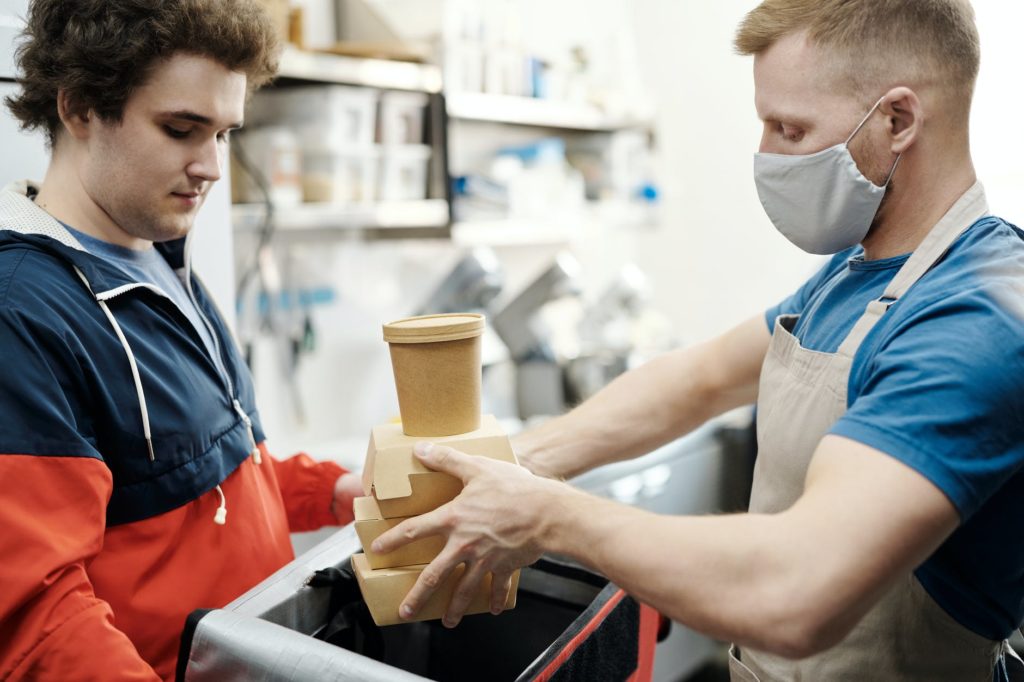COVID-19 advice
The information in this blog is correct as at 12 August 2020. For the most up-to-date Employment Law and Health & Safety advice to support your organisation through the COVID-19 pandemic, visit our Coronavirus Advice Hub, which is updated daily and contains a variety of free guidance notes, letter templates, checklists, risk assessments and more.
As the fight against coronavirus continues, so too does the debate regarding the use of face coverings and their efficacy in preventing the spread of the virus.
The wearing of masks on buses, trains and coaches has been mandatory since 10 July. On 24 July, the government updated the guidance to make the use of face coverings mandatory in additional enclosed public spaces in England. More recently, while not explicitly stated, the guidance indicates that contractors should also be expected to wear face coverings in unfamiliar settings.
In this article, we answer some common questions regarding the current position on face coverings in the workplace.
What is a face covering?
A face covering is anything that serves to cover your nose and mouth with the aim of reducing the spread of infection. Face coverings can be made at home, using scarves or other textile items that many will already own.
Why the debate?
As the virus is spread through breathing in air droplets containing the virus, there was some debate as to whether face masks should be worn by everyone in society. The argument in favour of face coverings was that droplets are less likely to be spread from one person to another if a covering was worn.
However, originally, the stance from the World Health Organisation (WHO) and Public Health England was that there was no evidence to support that wearing face masks or coverings made the wider public any safer. There are also studies to suggest that wearing a face mask may actually increase the likelihood of contracting the virus as a droplet enters the space between your face and mask.
NB: Despite this, there is evidence to show that when carrying out close health practises such as aerosol-generating procedures, a non-powered respirator offers a higher level of protection.
The WHO has since revised its advice following new information which showed that masks could provide “a barrier for potentially infectious droplets”. Accordingly, the different governments within the UK have amended their guidance on when and where coverings should be used.
This is a fast-moving picture. In England alone, the position has changed from no advice on the use of face coverings at all in the initial stages of the pandemic, to them being made mandatory on public transport and healthcare settings, and now coverings must be worn in enclosed public areas.
What should employers do?
In regard to the use of face coverings in the workplace, we recommend the following:

- Keep up to date with the government changes and follow the latest relevant advice.
- If the use of coverings is mandatory in your sector or setting, ensure that guidance and signage is in place for coverings to be worn.
- Review your COVID-19 Risk Assessment regularly.
- Contact us for professional advice and support.
What if someone refuses to wear a face covering when entering our premises?
If someone refuses to wear a face covering when entering your premises, and they are not exempt from doing so, you can decide to refuse them entry.
While businesses cannot legally enforce the wearing of coverings, police do have formal enforcement powers and can issue a fine to those refusing to wear a face covering. However, they should only be contacted as a last resort. The best defence here is to make your position clear ahead of time to avoid any difficult situations at the door.
Do contractors have to wear face coverings?
The latest government guidance for England is as follows:
“You are also strongly encouraged to wear a face covering in other enclosed public spaces where social distancing may be difficult and where you come into contact with people you do not normally meet.”
We therefore recommend, in all areas of the UK, that contractors are requested to wear a face covering when entering and working in the premises, unless they need to wear other personal protective equipment that this interferes with.
—
The position changes on a daily basis and the guidance may be subject to further revisions as the situation develops and we learn more about the virus. To avoid inadvertently putting people at risk and ensure your organisation remains COVID-secure throughout this time, it is important to have a system in place for staying up to date and to seek specialist support where necessary.
COVID-19 safety queries? Try our free Hub
Since the outbreak of coronavirus, Ellis Whittam has been working hard to develop and deliver practical Employment Law and Health & Safety resources to help all UK organisations overcome their workforce and compliance obstacles.
To access all of our regularly updated resources – including sector-specific risk assessment templates, policies, checklists and guidance on topical issues such as PPE and preparing for a local lockdown – visit our free Coronavirus Advice Hub now.

